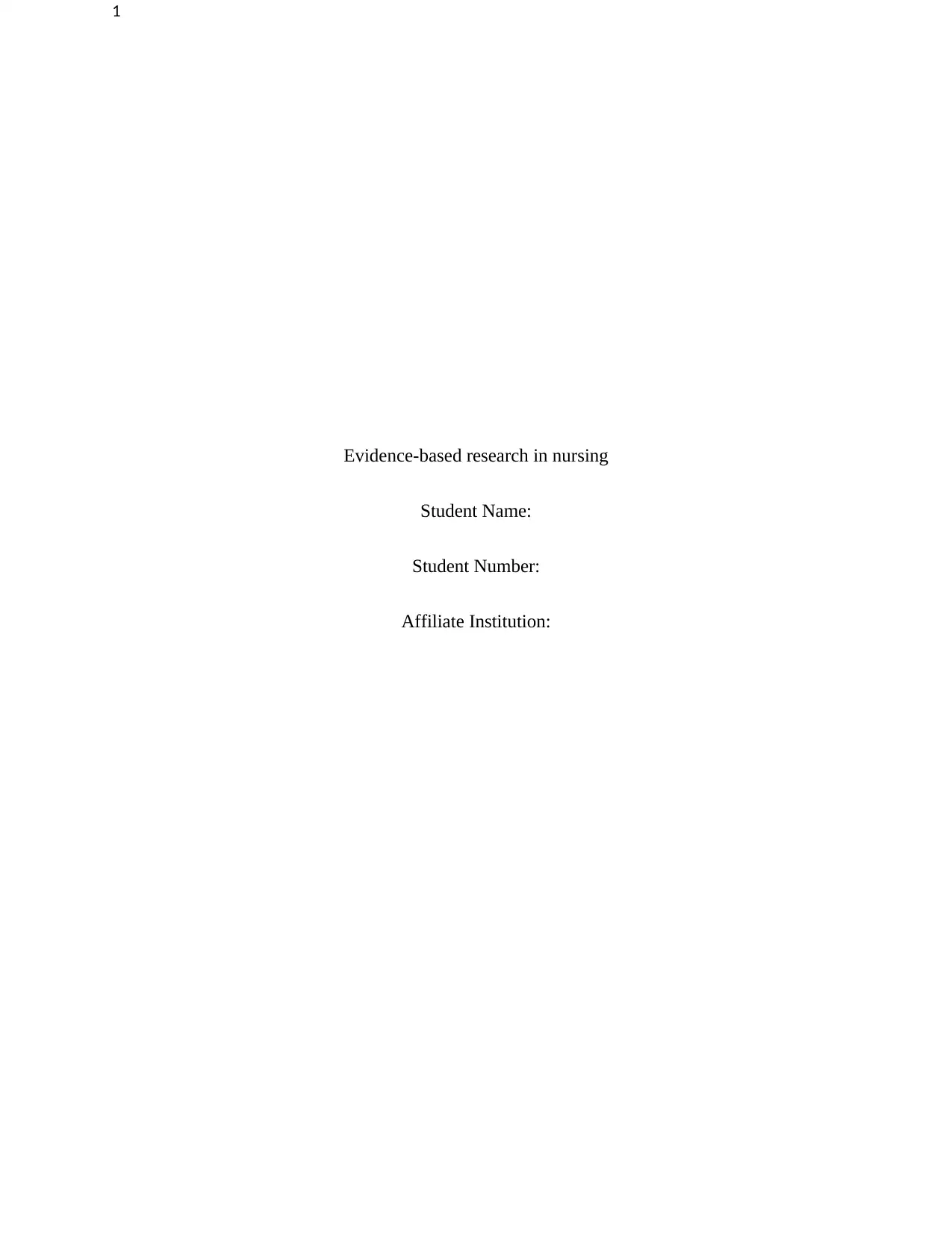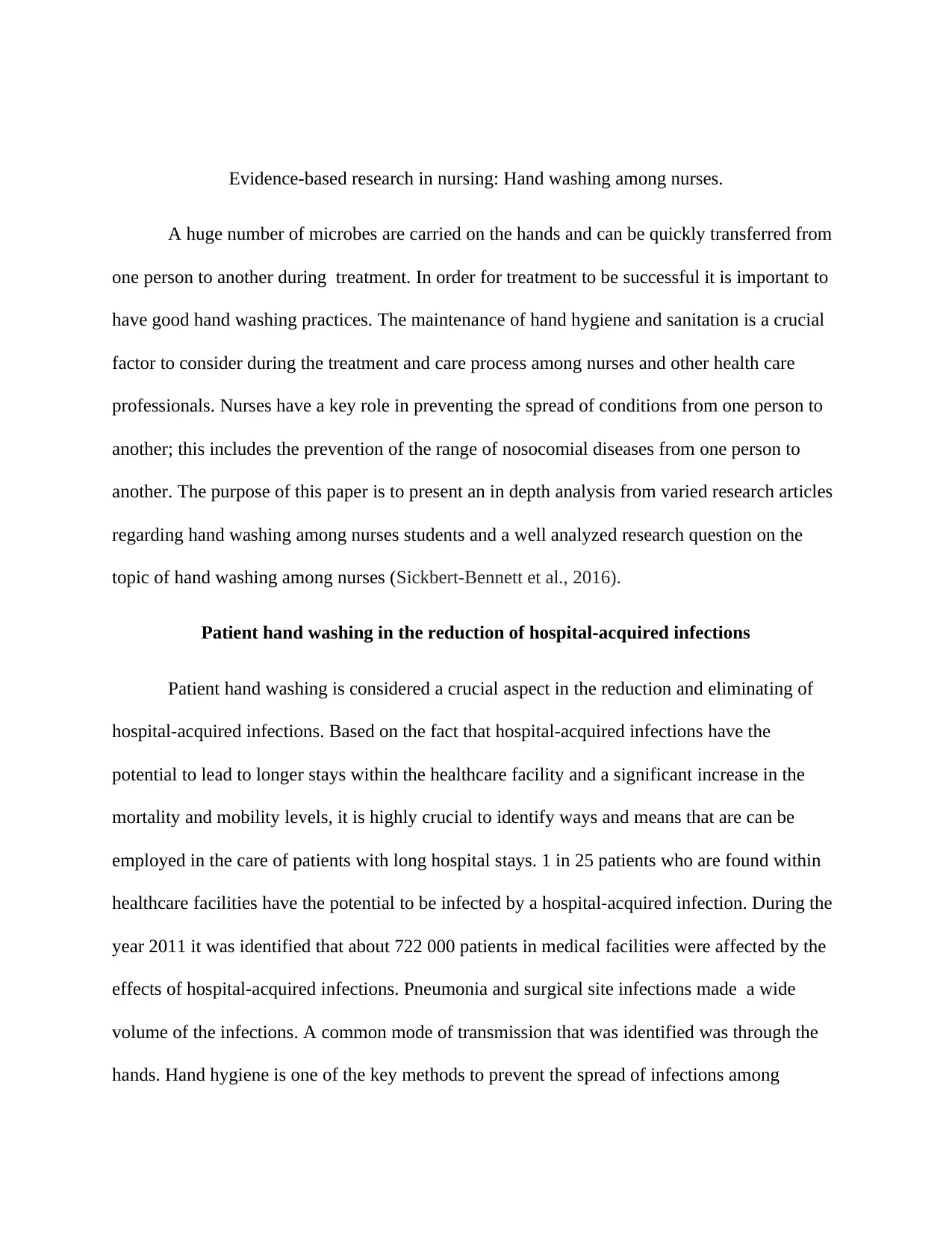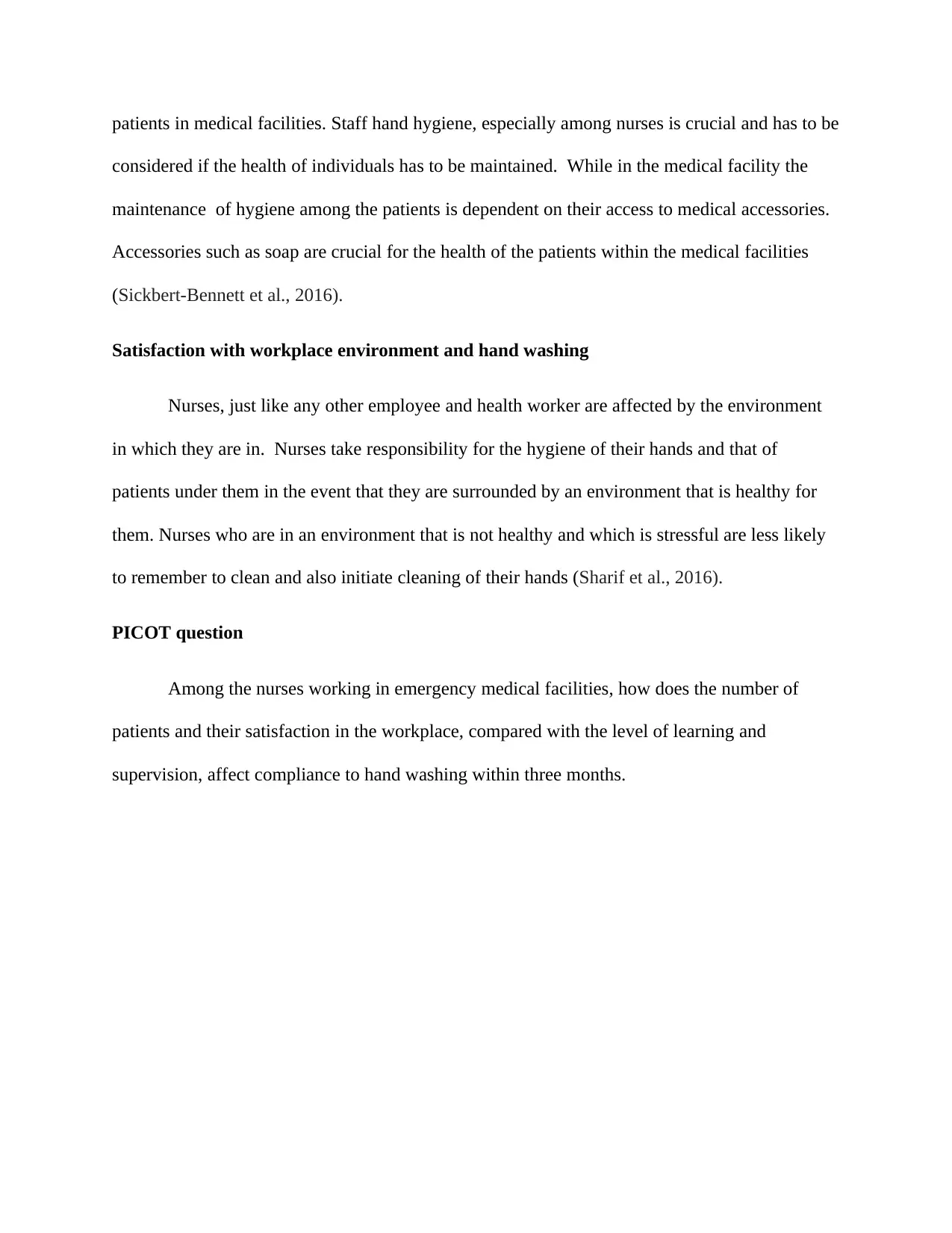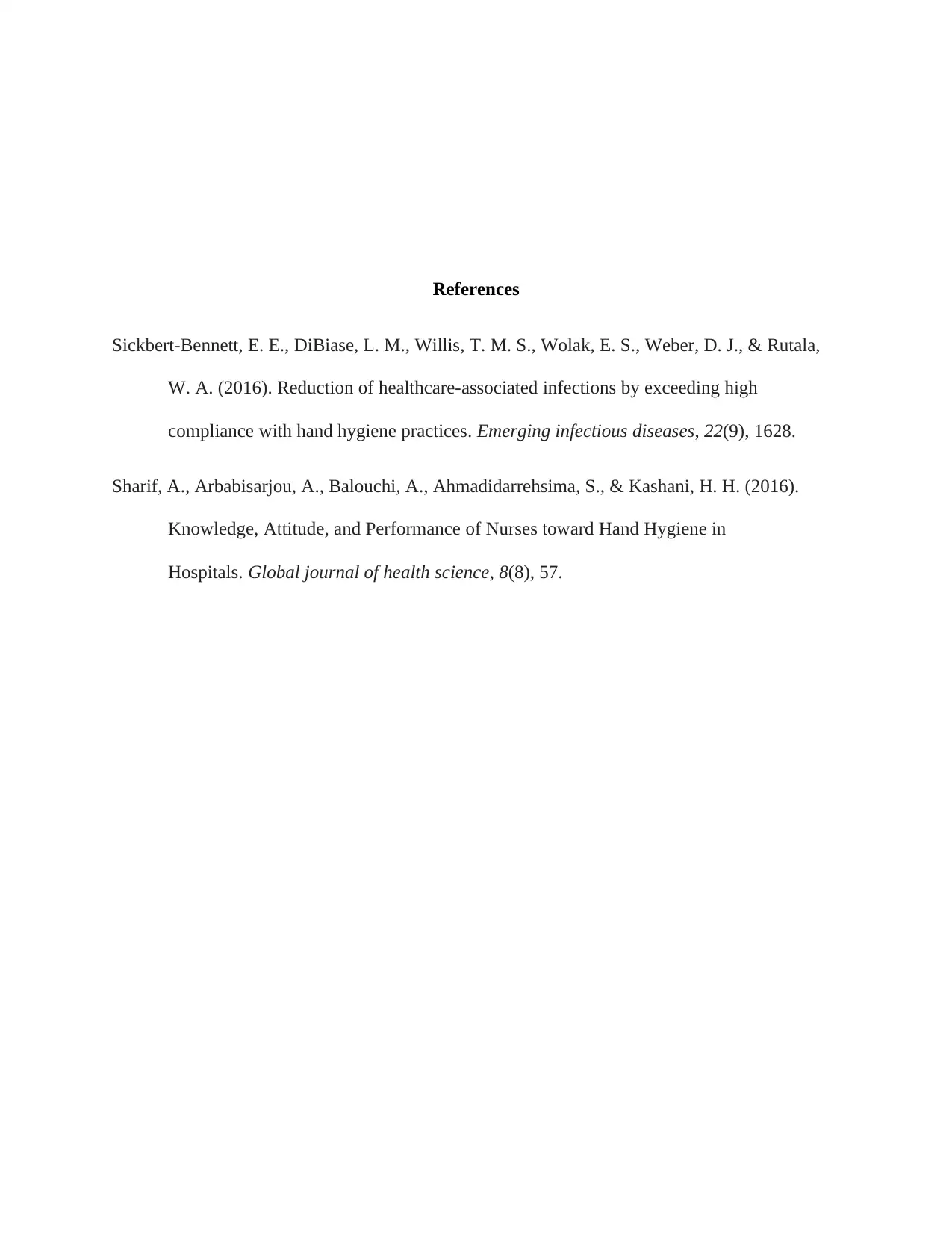Research on Factors Influencing Hand Washing Compliance in Nursing
VerifiedAdded on 2022/11/28
|4
|658
|404
Homework Assignment
AI Summary
This assignment delves into the critical issue of hand washing compliance among nurses within the context of evidence-based practice. It begins by highlighting the significance of hand hygiene in preventing hospital-acquired infections and ensuring patient safety. The paper explores the impact of factors like workplace environment and satisfaction on nurses' adherence to hand washing protocols, supported by relevant research articles. A PICOT question is developed to guide further research, focusing on the relationship between nurse workload, workplace satisfaction, and hand washing compliance within a specific timeframe. The assignment emphasizes the importance of hand hygiene in healthcare, the influence of environmental factors, and the application of research to improve nursing practice and patient outcomes. The provided articles offer insights into key themes like time constraints, self-protection, awareness, and social pressure impacting nurses' hand hygiene compliance. The study underscores the need for effective strategies to promote hand hygiene, ultimately aiming to reduce healthcare-associated infections and improve patient outcomes.
1 out of 4










![[object Object]](/_next/static/media/star-bottom.7253800d.svg)